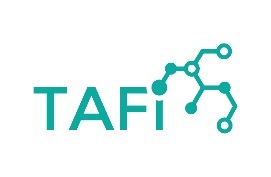TAFi, a leading provider of clinical data integration capabilities, have announced the general availability of its technology platform with features for vastly improved healthcare data interoperability. With the volume of data in the healthcare industry growing and diversifying, interoperability needs are increasing at a faster pace than the number of available solutions to meet them. TAFi was founded with the goal of solving this pressing challenge in healthcare in order to provide healthcare organizations, payers, and software/medical device vendors the opportunity to accelerate industry innovation.
Existing platform solutions for clinical data integration lack the ability to blend data from multiple sources in different types and formats in a quick and cost-effective manner, without requiring custom services. Ultimately, this results in integration bottlenecks and hinders innovation. Previously available only in beta, TAFi’s platform breaks free of the traditional ways of managing interoperability, aggregating data streams from multiple sources, both clinical and non-clinical, and in any format, under one unified platform and connects that data to the EMR.As a result, insights from patient data can be gleaned quickly and easily, offering up a true longitudinal view of a patient. With TAFi, care team communications are streamlined to enhance efficiencies and improve outcomes, and payers benefit from automated collection of data in real-time, as well as established interactive collaboration at the point-of-service within the EMR to allow for better pricing decisions and patient engagement programs.
“Our team founded TAFi around our united passion for improving the healthcare industry and delivering on the promise of making true industry interoperability not just a concept, but a tangible reality. At TAFi, we see challenges of interoperability beyond just establishing and implementing standards. As a healthcare technology community, we need to work collaboratively to create accessibility to data, and platforms like TAFi can foster the innovation that follows,” said Mel (Malka) Cohen, CEO and co-founder of TAFi. “With this goal in mind, our platform is designed to be both powerful and simple, allowing our partners to improve upon their existing integration capabilities.”
To stay ahead of these new developments, TAFi is working on future functionality that will focus on helping its customers manage the complexity of integrating different data sources and types and giving them the right nudge to intelligently manage what is happening with their data streams. Visibility not only within the data, but also about the data itself, is important in helping users gain valuable insights that can positively impact both clinical and operational outcomes.
Raw data from thousands of patient record elements can be automatically fed into the platform in just milliseconds, rather than the hours it can take otherwise. This data is then normalized and stored on a centralized governed data layer. Utilizing TAFi’s single API to access this layer, customers can easily test current compatibility and run analytics or other clinical support tools. By accessing the data set directly from this layer in real time, users do not have to worry about negatively impacting the EMR, and there is no need for them to build their own data warehouses.
The platform ingests data from any source, including EMRs, EHRs, LISs, and HIEs, and is the only system that is out-of-the-box compliant with existing and evolving industry specifications for interoperability (FHIR, HL7, C-CDA, etc.). The technology is unique in how it organizes this data in a governed data layer and pushes it out in the appropriate format required.
TAFi’s technology reduces the burden on vendors and healthcare organizations alike through its simple and fast point-to-point integration, only taking between one to four weeks for full implementation. The platform can be deployed either on-premise or in the cloud. Custom services are typically expensive and lacking in the ability to scale; TAFi enables faster and simpler scaling with a modest pricing model – new sites can be turned on within the same day.





